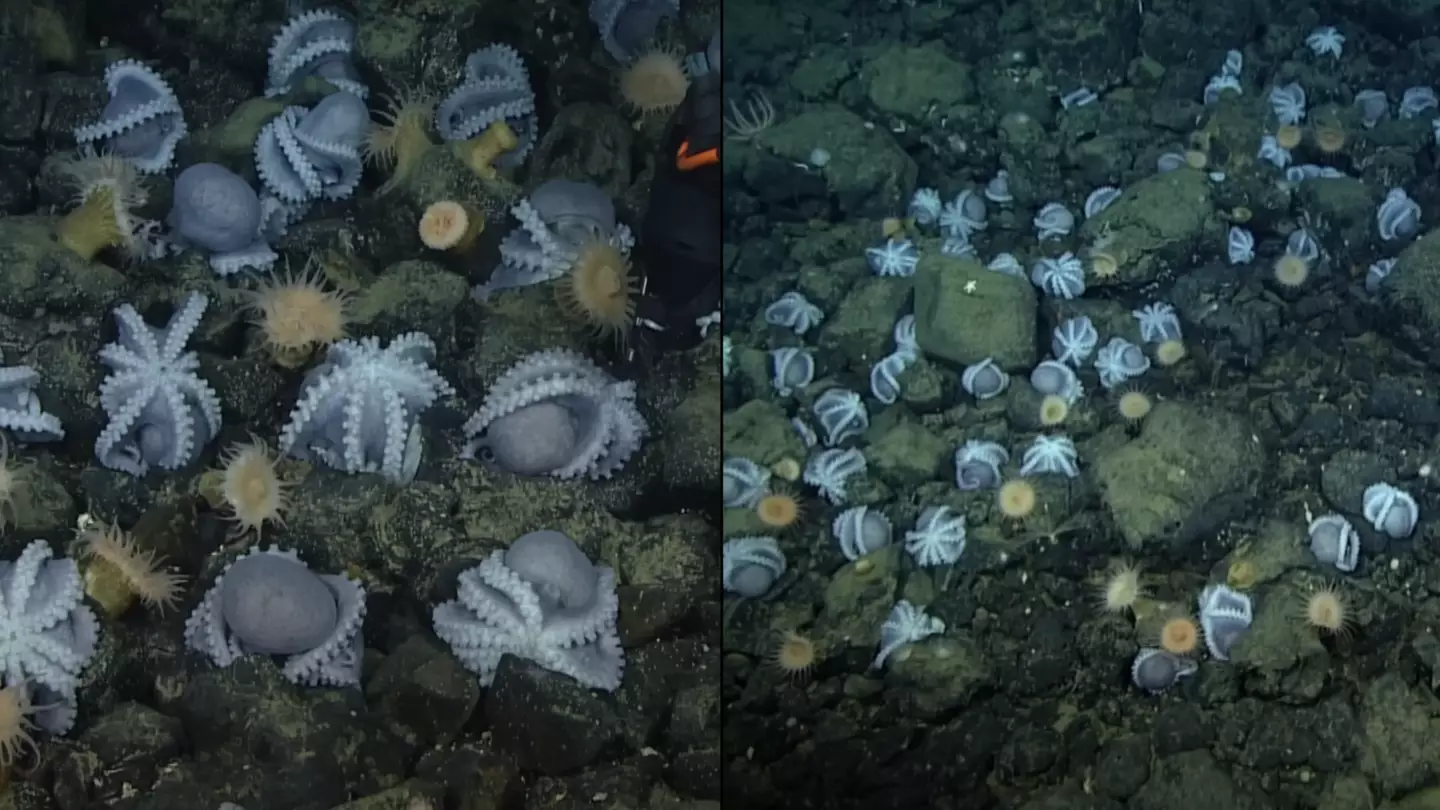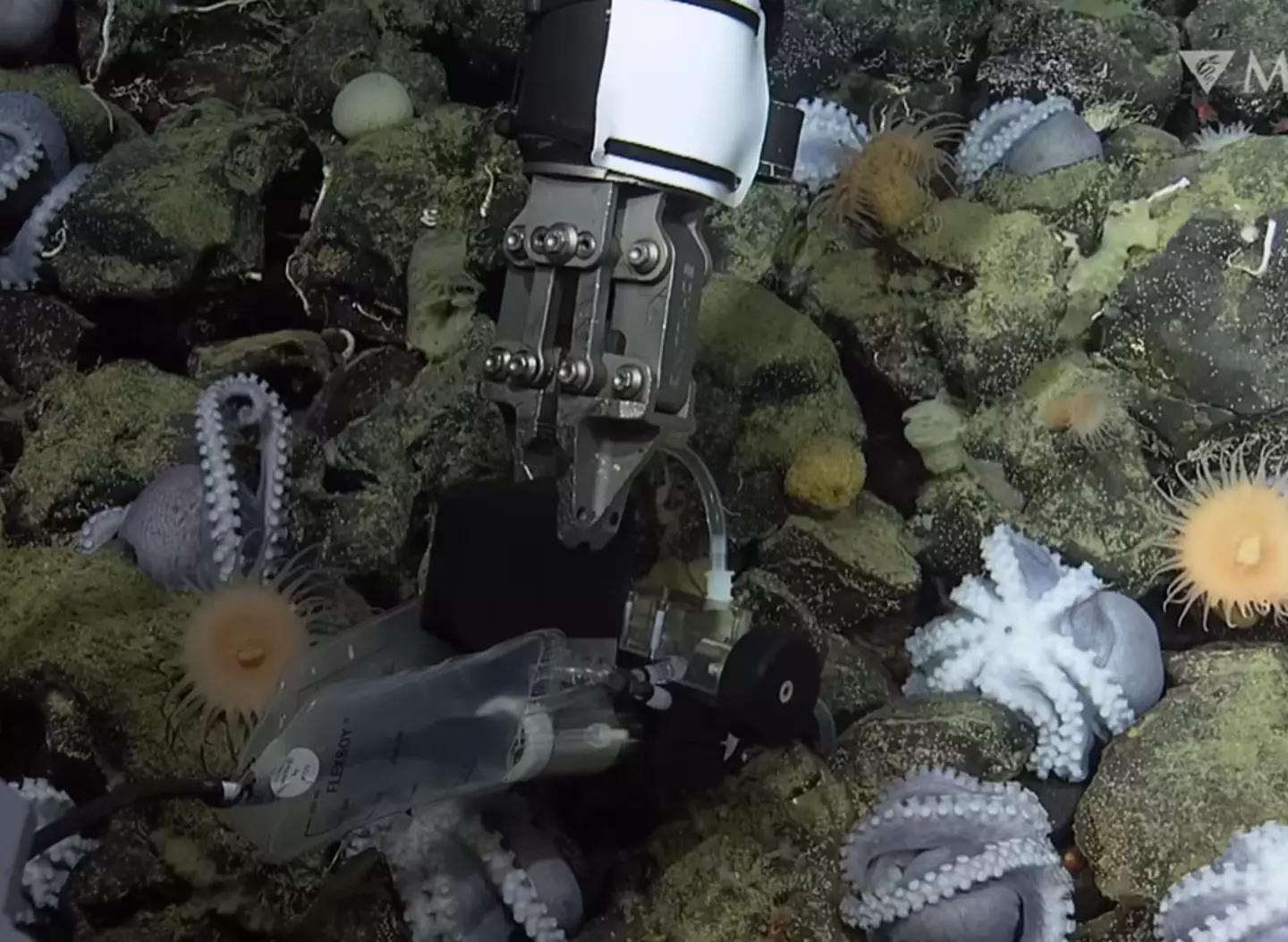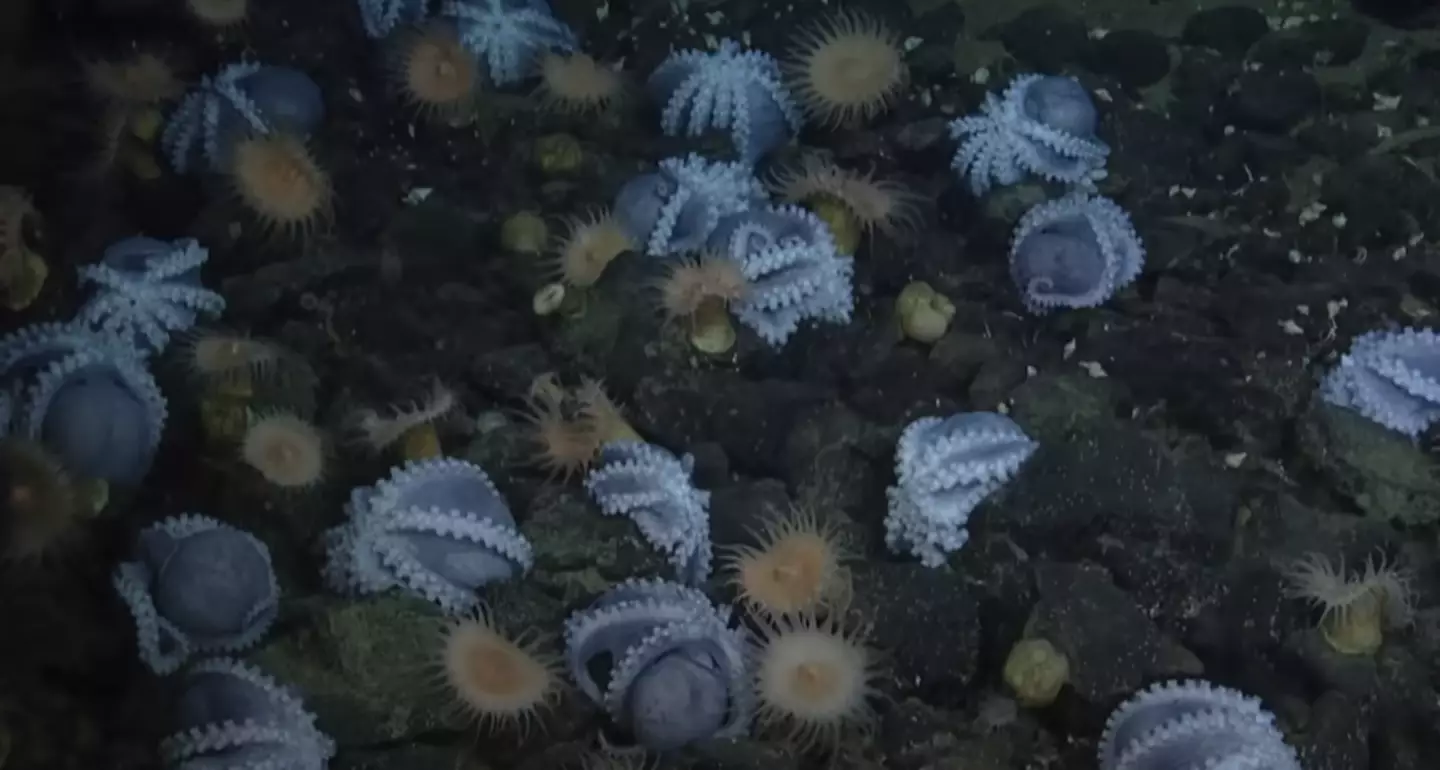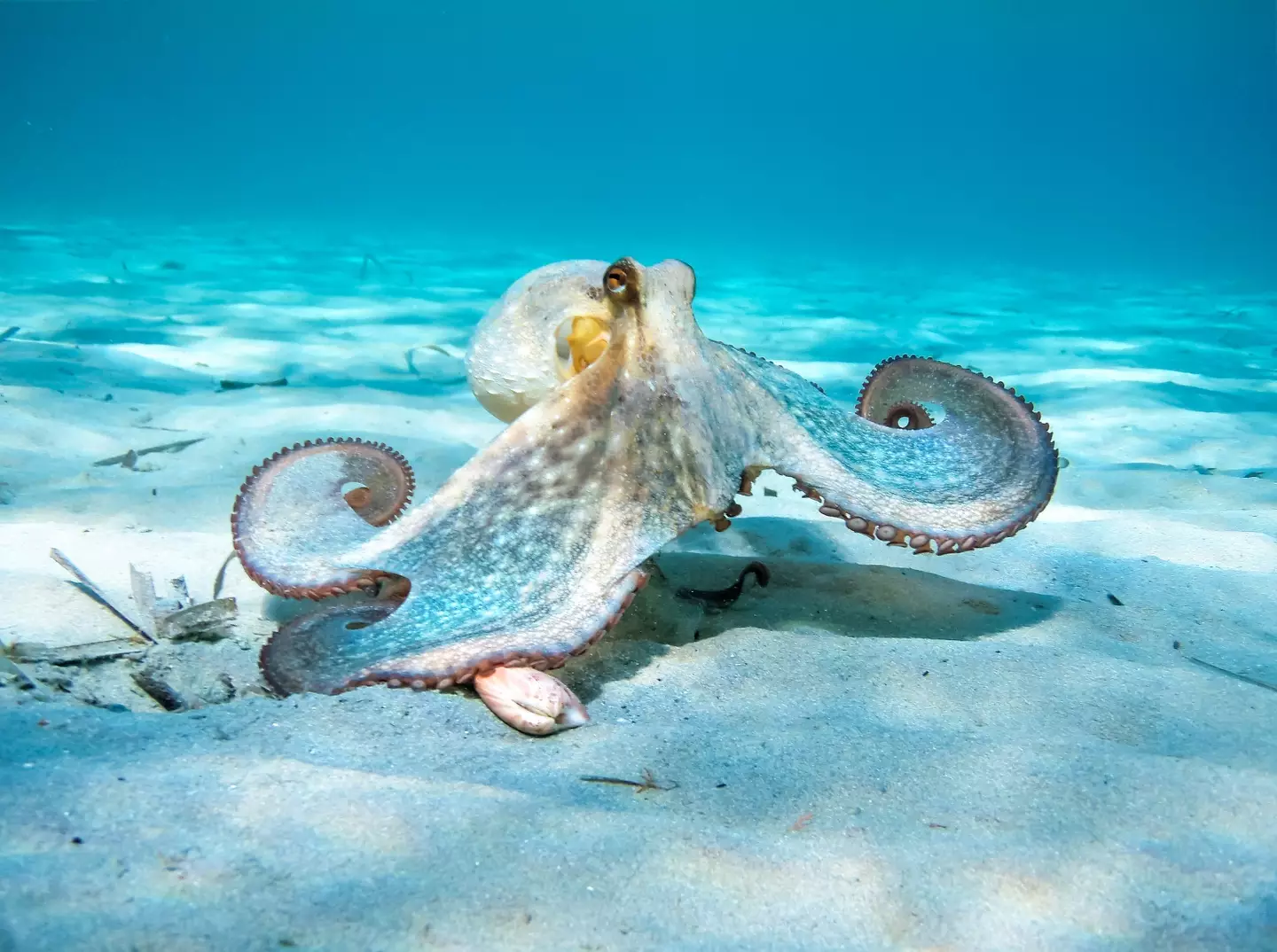
The largest known octopus gathering on Earth has confused scientists for many years, but now they know why these sea creatures congregate at the specific spot.
Around 20,000 octopuses travel to an area, which is located two miles below the Pacific Ocean to mate, raise babies and then die.
The location is around 80 miles west of Monterey, California, US and is known as the 'Octopus Garden'.
The reason for octopuses travelling there has been a mystery, but a study found exactly why they choose that spot.
Advert

According to a team led by Jim Barry, senior scientist at the Monterey Bay Aquarium Research Institute (MBARI), the area has warm water that accelerates the growth of octopus embryos.
This warm water aids in keeping their kind alive.
According to the report, it takes females about 1.8 years to brood their young, which is a lot faster than any other area octopuses live.
The study explained that ‘localized deep-sea heat sources may be essential to octopuses and other warm-tolerant species’ and that ‘most of these unique and often cryptic habitats remain undiscovered and unexplored.’
The study, posted to Science Advances, found that the warm waters provide a metabolic boost that shortens the brood period for pearl octopuses.
Barry said in a call with Motherboard: “We’ve found octopus nurseries here and there, where you might find lots of octopus living on rock walls and laying their eggs, but this was way more than we'd ever seen before.
"Normally, ‘a lot’ would be hundreds. This is thousands and it's associated with these thermal springs, which is a new twist to the entire deep-sea ecology.”

The team spent years exploring the Octopus Garden with an MBARI’s remotely operated vehicle (ROV) Doc Ricketts, to dive down 14 times within 3 years.
The ROV used a time lapse to snap a shot every 20 minutes from March to August 2022 to figure out what the octopuses did in the area.
According to the team, the location is full of brooding females, dead corpses, and vulnerable eggs and hatchlings.
The site’s thermal springs saw the females settle around its warmth to utilise its accelerating properties.
This is because the site reaches temperatures of about 11°C, which is nearly 10 times higher than regular deep-sea temperatures of 1.6°C.
Barry said: "You can have a vast reproductive improvement by shortening that brood period.
"We think that's really important for species that live in deep waters near very cold temperatures, so maybe that's the big advantage that we see for this octopus.”

He added: “We don't know enough about the deep sea yet.
“We need to know more about it so that we can identify those areas that are really critical—not just for octopus necessarily, but for all the species involved in the ecosystem in the area. We can use that information to make more rational judgments about how we should manage these resources.
“Not to mention, it just inspires us all because it enriches our lives to know that there are these really cool things in the world and we can appreciate them for their intrinsic value.
“That’s part of it, too.”
Topics: Animals, Science, World News
